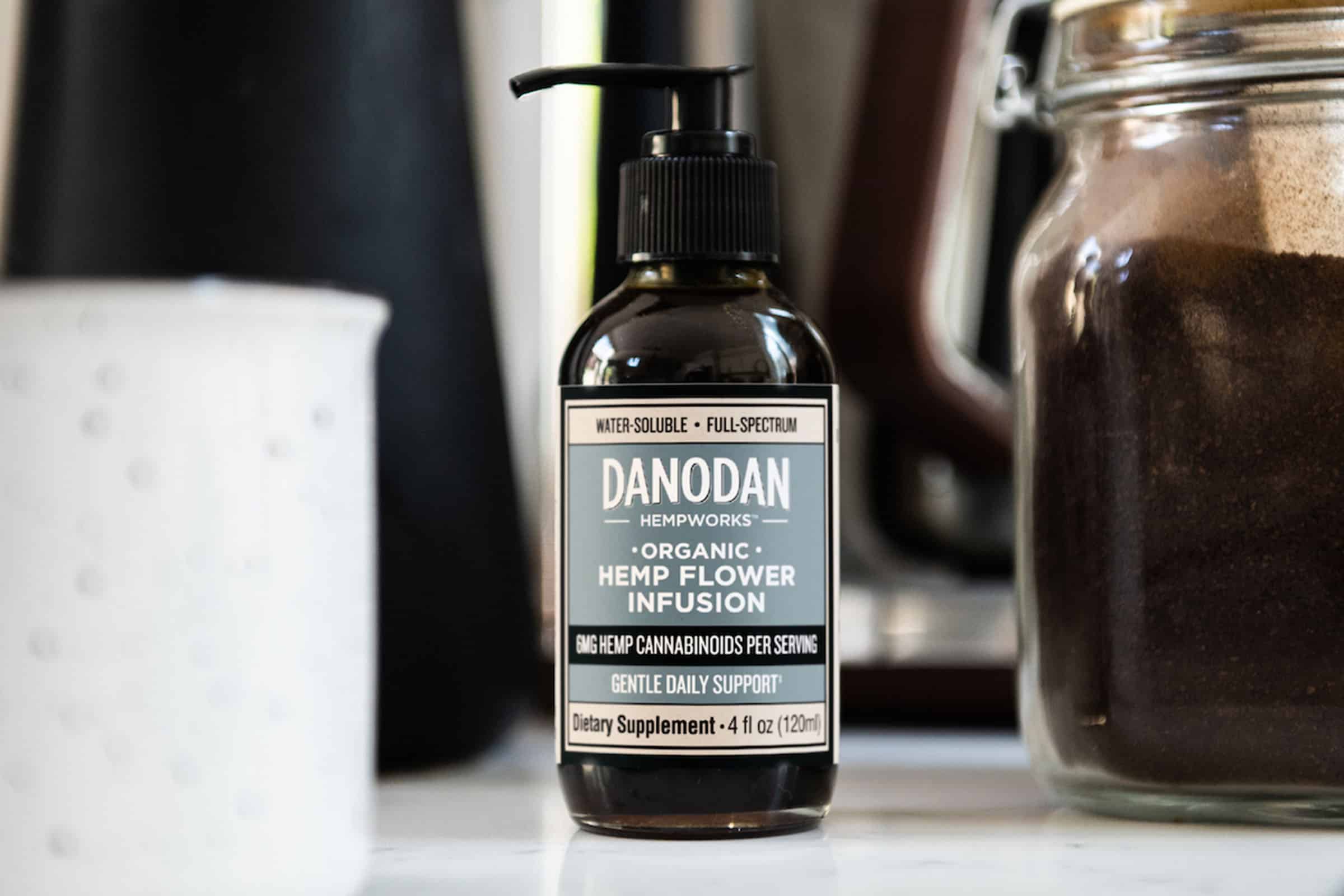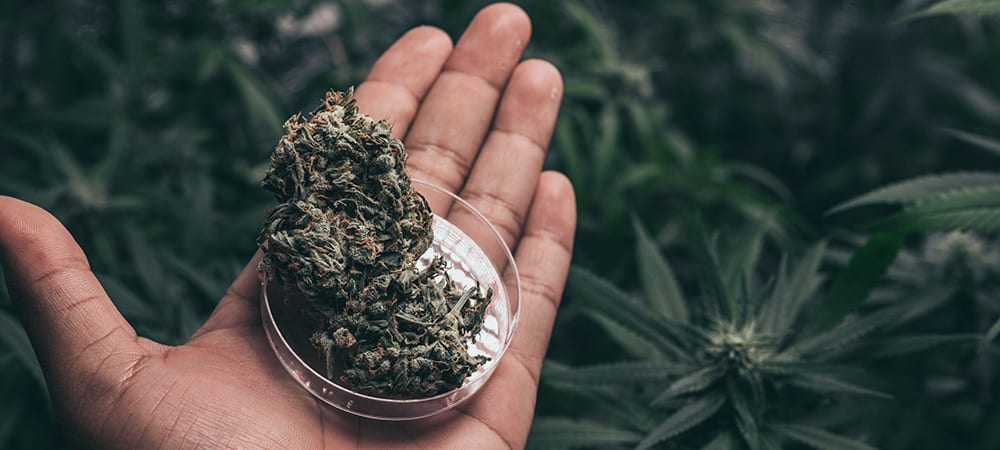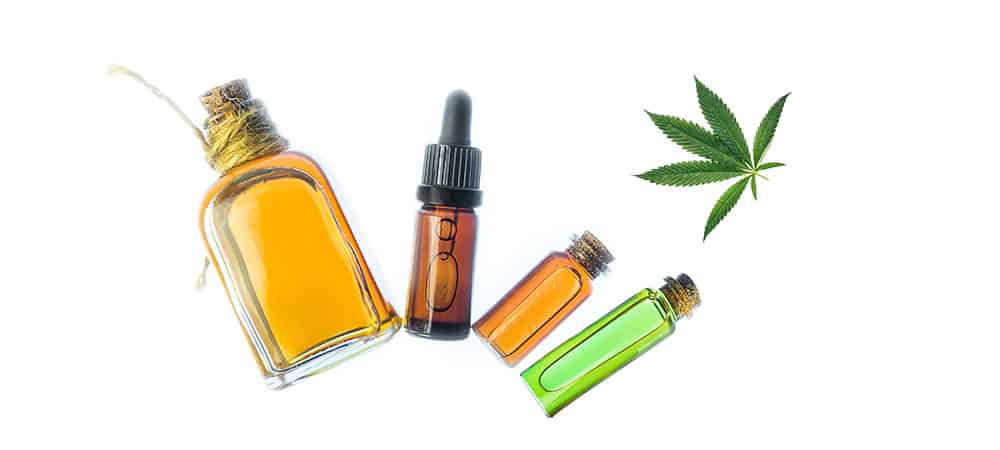
Full-Spectrum Hemp Oil: Explained
What is full-spectrum hemp oil?
Well, we could just say that full-spectrum hemp oil is full-spectrum oil from the hemp plant… and that wouldn’t be wrong… but it wouldn’t be helpful either.
So let’s get into it.
Why Hemp?
Hemp isn’t a fad.
It’s long been a part of the human experience. In fact, humankind has been cultivating hemp, in some form, for medicinal, religious, and recreational use for millennia.
Hemp is the non-psychoactive member of the cannabis plant family. In fact, hemp is cannabis (commonly known as marijuana), but it’s been cultivated so that it has very little tetrahydrocannabinol (THC), the compound in cannabis that causes you to feel “high.”
In the United States, hemp is also known as industrial or therapeutic hemp. It’s legal in all 50 states and, by law, contains 0.3% THC or less. (More on this later.)
Hemp and cannabis experienced widespread criminalization in the 20th century, but, more recently, the Agriculture Improvement Act (commonly known as the Farm Bill) of 2018 removed hemp from the Controlled Substances Act, legalizing it in all states. Legally, this applies to hemp with THC concentrations of 0.3% or less.
Since legalization, research on hemp has boomed.
And recent hemp studies support a lot of what many cultures have long believed regarding hemp’s beneficial properties and effects.
Hemp’s growing popularity and the research around it is partly due to the presence of compounds in hemp called cannabinoids.
And, while much of the research on hemp and cannabinoids is new and emerging, so far, it’s showing a lot of promise.
With all this promising research, it makes sense that researchers and retailers alike would look for novel ways to quickly and easily use hemp.
Enter: Hemp oil.
Are There Different Types of Hemp Oil?
Hemp oil can be a bit of an umbrella term.
Put simply, hemp oil broadly refers to oils, tinctures, or extracts that come from the hemp plant.
That means hemp oil may also refer to oils, tinctures, and extracts commonly known as CBD oils. Again, this is because CBD is one of the most common and (and most popular) compounds found in hemp.
Why oil? Because hemp compounds like CBD are fat-soluble, meaning it’s easier for the body to absorb and digest them if they’re already dissolved in a carrier oil or another fat-based medium.
NOTE: The term hemp oil can also refer to hemp seed oil, oil pressed from hemp seeds – similar to how olive oil is made. While hemp seed oil has high amounts of healthy fatty acids, it contains almost none of the beneficial phytocannabinoids (like CBD) found in hemp.
What is Hemp Oil: Full Spectrum, Broad Spectrum, & Isolate
So hemp oil can mean a few different things and, similarly, there are a few different types.
Most of what you see sold under the hemp or CBD oil umbrella is a hemp-derived extract or isolate mixed with a carrier oil.
What does that mean?
Well, there are roughly three categories of hemp oil, depending on how each is processed and what each contains: isolate, broad-spectrum, and full-spectrum hemp oil.
Isolate is the result of, you guessed it, isolating just CBD from hemp. This is typically done in a lab using harsh processes and solvents. The result is a tasteless, odorless powder (very meh) that’s then added to a carrier oil or some other fat-based medium.
The research surrounding the benefits of hemp and CBD is undoubtedly exciting – everything from supporting healthy sleep to reducing pain due to inflammation to preventing certain types of seizures – so it makes sense that companies are isolating it.
But it’s worth mentioning: CBD by itself is fine, but it’s even better with its buddies. (More on that later.)
(It’s also worth mentioning that, because of the harsh processes and solvents, it’s difficult for a company making isolate to be certified organic.)
Broad-spectrum products aren’t much more complex than isolate. They have a few more of hemp’s beneficial compounds, but they’re typically made using the same harsh processes and solvents.
But full-spectrum hemp oil, on the other hand, avoids these harsh processes and solvents and preserves the essential compounds and cannabinoids that make hemp so beneficial.
(Some folks may also use the term full-spectrum cannabinoid oil, but this, too, generally refers to full-spectrum hemp oil.)
Does Full-Spectrum Hemp Oil Have CBD?
So, does full-spectrum hemp oil have CBD? It sure does. And plenty more.
Any reputable full-spectrum hemp extract will provide the whole spectrum of hemp’s beneficial compounds.
What Is Full-Spectrum Hemp Oil Used For?
So cannabinoids like CBD (and hemp oil in general) are the subject of a lot of new research, but if you’re wondering specifically what is full-spectrum hemp oil used for, studies suggest it may help with sleep, stress, and inflammation.
Some studies even support their ability to combat epilepsy (better, even, than CBD by itself), while others suggest they may have a role in treating other neurological conditions.
Another exciting area of hemp research looks at how hemp and CBD from hemp oil interacts with the endocannabinoid system (ECS), a system in the body that’s also the subject of promising new studies.
Some of these studies suggest the ECS plays a part in maintaining the body’s homeostasis or balance. It does this by reacting to environmental stimuli and communicating with the body’s other systems.
This is all to say that the ECS may likely be involved in everything from mood to immune responses.
Additional research suggests cannabinoids found in hemp (like CBD) support healthy ECS activity and help to naturally maintain balance in the body.
What Else Is Full-Spectrum Hemp Oil Good For? And What Is In Full-Spectrum Hemp Oil? 
What is in full-spectrum hemp oil (or full-spectrum cannabinoid oil)? Hemp! Because of this, full-spectrum hemp oil’s benefits are basically the same as those you’d get from using the whole plant itself!
Researchers have identified more than 100 cannabinoids in hemp and hundreds of other potentially beneficial compounds like terpenes and flavonoids as well.
Terpenes and flavonoids are responsible for how the hemp plant tastes and smells. But studies suggest that terpenes and flavonoids may also work to improve brain health and cognitive function, and that they contain antioxidant and anti-inflammatory properties as well.
And maybe even more exciting than what hemp contains is how all those compounds work together.
The Entourage Effect in Full-Spectrum Hemp Oil
A theory called The Entourage Effect indicates that all the compounds and cannabinoids in hemp not only work together but, when taken together, are actually even more effective than a single compound or cannabinoid taken alone.
Have you heard the phrase greater than the sum of its parts? That’s what we’re talking about here.
Danodan & Full Spectrum Benefits
Danodan products are made with whole organic hemp flowers (or buds), not just a single cannabinoid isolated in a lab. We then gently steep these flowers in organic vegetable glycerin, an alternative to oil, to retain all of hemp’s magic and offer all of full-spectrum hemp oil’s benefits.
(That’s why we like to say Danodan is more than just CBD.)
Glycerin is a natural substance derived from plants. It’s similar to oil, but completely water-soluble, so not only does it dissolve easily into water (making Danodan products easy to mix into drinks), but it’s more readily absorbed by the body.
The result is a full-spectrum hemp infusion that becomes the base for all of our organic products. And it’s unique because most hemp products are either full spectrum or water soluble, but rarely both!
For some of our products, our Enhanced Hemp Flower Infusion, for example, we add an organic full-spectrum hemp extract to increase their potency. This full-spectrum hemp extract is similar to our glycerin base, but is more concentrated and offers even more of hemp’s beneficial compounds.
Full-Spectrum Hemp Oil? Everything Hemp Has to Offer
So what is hemp oil (full spectrum or otherwise) and what is full-spectrum hemp oil good for?
Well, full-spectrum hemp oil is the most premium form of hemp oil, providing all of hemp’s beneficial properties. It’s hemp in a bottle!
And what is full-spectrum hemp oil good for? From helping manage daily stress to supporting healthy sleep to combating inflammation-induced pain, it’s an exciting time for hemp oils!
At Danodan, every one of our products is full spectrum, thoughtfully formulated to support you with everything hemp has to offer.






